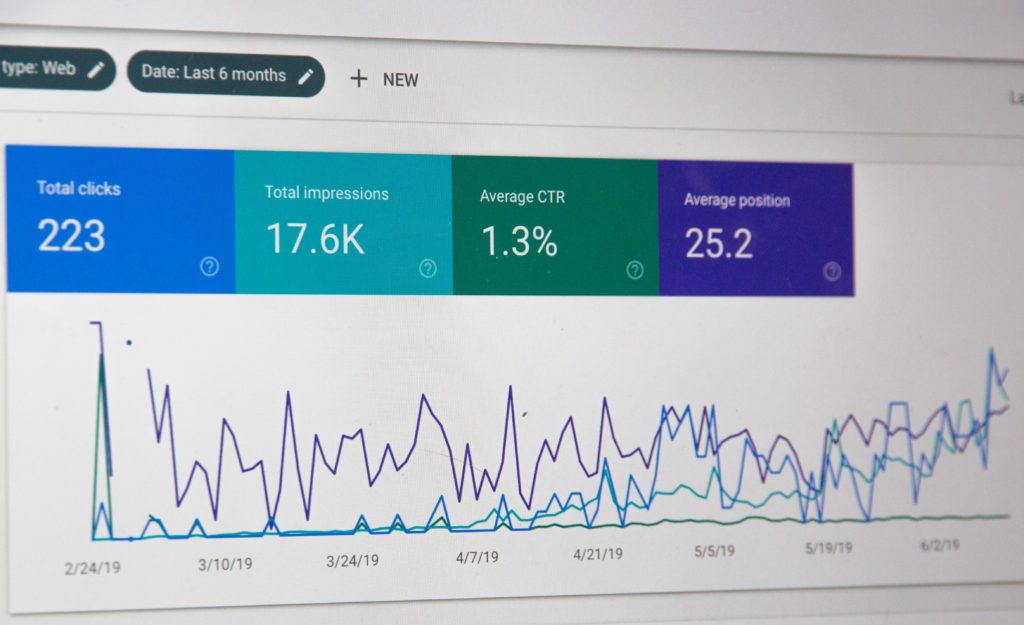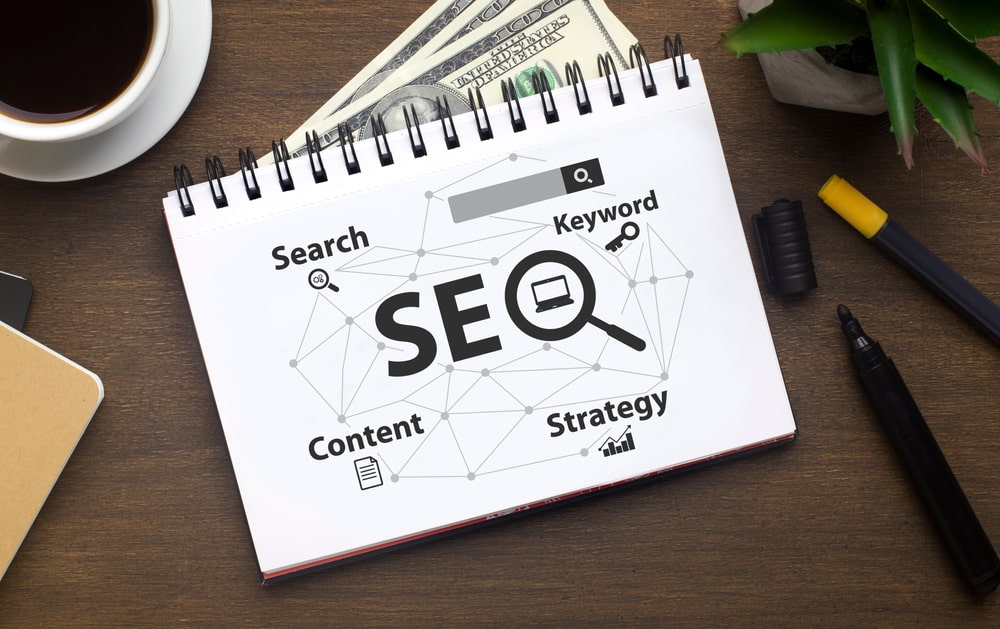As a real estate agent, search engine optimization (SEO) can be one of your most effective digital marketing strategies.
The primary objective of real estate SEO is to boost your ranking in the search engine results pages (SERPs) and generate more traffic to your website. However, optimization strategies work on various levels and can help you increase conversion rates and build authority in your service area.
In this guide, our team at Local Leader® takes an in-depth look at why real estate SEO is critical for your business. We also discuss effective SEO tactics and the ranking factors for real estate companies.
What Is SEO for Real Estate?

When someone does an online search, the search engine attempts to return the most valuable and relevant results for the query. The search engine’s algorithms consider more than 200 ranking factors to ensure that the searcher receives the most useful information. These factors include mobile usability, content quality, domain authority, and dwell time.
Search engine optimization (SEO) includes all the necessary website improvements to ensure that your website will rank high in relevant queries.
For example, suppose you sell residential properties in Idaho Falls. In this case, you want your website to appear at the top of the search engine results page (SERP) when someone Googles “real estate agent houses Idaho Falls.”
You or a digital marketing SEO specialist must craft your website to align with Google’s ranking factors. A comprehensive SEO strategy includes:
- On-page SEO
- Off-page SEO
- Technical SEO
- Local SEO
Below, we take an in-depth look at each type of SEO and the most critical ranking factors to incorporate for each.
Why Real Estate SEO Is Essential for Your Business
Google’s first results page is the most valuable website traffic source. Most people who need a product or service take out their phones to search for a provider.
According to user behavior statistics, 93% of all online experiences start with a search engine—and the top three results receive 75% of all clicks.
If your site appears among the first results, users will regard you as an authority in the industry. After all, Google believes you are the best result for their search, so why shouldn’t they?
When you incorporate SEO into your marketing strategy, you also improve the quality of your website traffic.
The people who visit your website from the search engine results need a solution that you provide. In other words, these visitors are more likely to take a specific action, such as listing their property with your agency.
Implementing a Real Estate SEO Strategy
Optimizing your website for search engines is a long-term strategy that requires a skill set that some realtors might find overwhelming. However, the benefits of real estate SEO make this strategy worth implementing.
SEO takes longer than pay-per-click (PPC) advertising campaigns to generate results. However, if you implement the SEO practices yourself, this marketing strategy will not cost you anything. You won’t need to pay to rank organically on Google or other search engines.
Also, SEO efforts have long-lasting results. For example, once you have optimized a service description, you never have to do it again, and the page will continue to rank for relevant searches. On the other hand, your Google or Facebook ad will only generate traffic while your campaign is active.
An effective SEO strategy reduces the need for additional marketing strategies. SEO is an inbound marketing strategy, and as your optimizations take effect, your website will generate a consistent stream of leads, eliminating the need for expensive local advertising.
Start With Keyword Research

Keywords provide the link between searches and the real estate solutions you offer. Incorporating the right keywords into your content will ensure that the traffic to your website fits your target market persona.
You need to target high-intent, long-tail keywords with three or more words that are relevant to your service location. Consider the following long-tail keyword:
“How to sell my house quickly in Charlotte, NC.”
This search term has a high conversion probability. However, the number of real estate agents targeting this term is likely low.
On the other hand, if you target the keyword “residential property,” you will likely encounter fierce competition in the search results and low conversion rates.
Types of Real Estate SEO

A comprehensive SEO strategy consists of various optimizations. The sections below discuss the different types of SEO that are relevant to real estate agents and brokers.
Real Estate On-Page SEO Factors
On-page SEO, or onsite SEO, are optimizations you make directly within your website to boost its ranking in search engine results. Because on-page elements are under your control, you should start with these improvements.
As part of on-page SEO, include your main keyword in your website’s title tag (tag). You should also optimize your site URLs using appropriate subdomains, domains, and subdirectories.
Optimize your URL slugs by simplifying them and including relevant keywords. You can also make your URL slugs easier to read by separating the words with hyphens, for example: https://blog.realtorname/sellerguides/how-to-sell-my-house-quickly-in-charlotte
Other on-page SEO tactics to implement:
- Optimizing each page’s meta description
- Ensuring that your website is mobile-friendly
- Adding internal and external links to your content
- Adding latent semantic indexing keywords, or main keyword variations, to your content
- Providing alt tags for all images on your website
Content marketing should also form part of your on-page SEO strategy. Publish one or two high-value blog articles per week to target long-tail keywords and establish authority as a realtor.
Off-Page SEO and Backlinks
Off-page SEO includes optimizations that you implement outside the scope of your website. This strategy aims to demonstrate your website’s authority to search engines.
An off-page SEO strategy involves building your backlink profile. A backlink is a link on another webpage that points to your site. The ranking factors that determine the SEO value of your backlink profile include:
- The number of websites that link to your website (referring domains)
- The number of backlinks to your website
- The number of referring internet protocol (IP) addresses
- The number of referring jump links, or anchors
The presence of keywords in a backlink’s anchor text does not significantly affect rankings. However, the relevance of anchor text can increase the SEO value of a backlink.
Publishing guest blogs and writing press releases are effective ways to get backlinks on authority websites.
Technical SEO Optimizations for Real Estate Websites
Technical real estate SEO makes it easier for search engines to crawl and index your on-page content. Here are the critical technical optimizations to implement:
- Improving your website’s user experience with straightforward navigation, HTTPS security, and fast page loading
- Enhancing your website’s indexability with robots.txt file optimization, “no index” tags, and sitemaps
- Using Google Search Console to identify and resolve crawl errors
- Resolving broken links by deleting them or directing them to appropriate pages
- Improving your website’s mobile responsiveness is also part of technical SEO. Your web pages, including text fonts and images, should load correctly and quickly on all mobile devices.
Local SEO Optimizations
Local SEO involves optimizations to rank for location-specific searches. Some of these tactics, such as URL and meta description optimization, overlap with on-page optimization.
Effective local SEO tactics include:
- Interacting with your target audience on local social media pages
- Adding your business name and contact information to online directories
- Adding location pages to your website
- Publishing blog articles that are relevant to your service area and that target location-specific keywords
Optimizing your Google Business Profile is a crucial local SEO tactic that will help you appear in the Google three-pack for local business searches. For this, you should:
- Provide all relevant profile data, including your business name, operating hours, website URL, and physical address
- Add high-quality photos
- Respond to reviews from property buyers and sellers
- Regularly publish Google Business Profile posts with valuable information
The Top SEO Ranking Factors for Real Estate Websites
If you are not using professional SEO services, you might find it challenging to incorporate every ranking factor into your SEO strategy. Instead, focus on the top-ranking factors, then build out your SEO strategy over time to include others.
The ranking factors your strategy should prioritize are:
- Creating high-quality, relevant content to target specific keyword phrases
- Building an authoritative backlink profile
- Ensuring that your website is mobile-friendly
- Improving your page loading speed and website navigation
- Targeting keywords with a high conversion potential in all onsite elements, including title tags, headings, image alt tags, and meta descriptions
- Ensuring that search engines can crawl and index all your web pages
Take Action Now
An effective real estate SEO strategy is crucial to ensure long-term business growth. When you optimize your website for search engines, you also improve your site visitor’s user experience, which maximizes conversions. At Local Leader®, we provide free digital resources for real estate agents, teams, and brokerages. Subscribe to our newsletter today!






